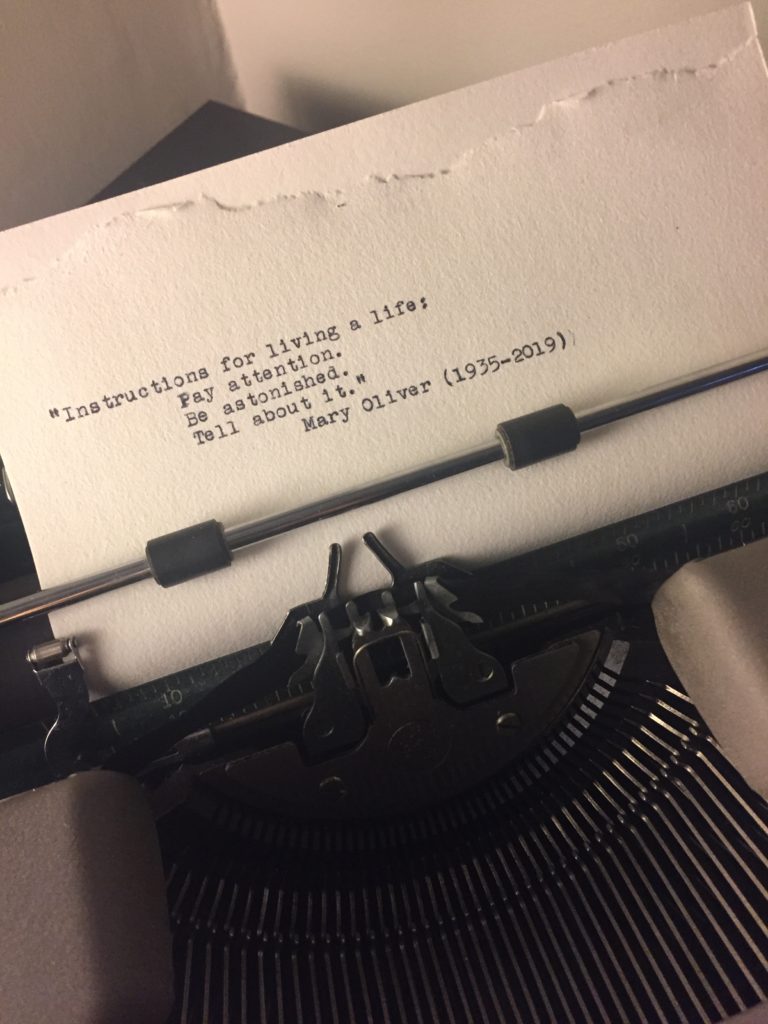10 November 2019
For the past twenty years, I’ve been teaching in classrooms, at conferences, and online in diverse places, to diverse students. Whenever I teach a new course, and often when I give any kind of talk, I begin with a poem.
While there are pedagogical reasons for any teacher to do this, the truest reason why I begin with poetry is simply because of the pleasure it brings, both to my students and to me. The sound, the heightened language, the idea that ‘we’re starting with a poem’ is a signpost that says: something special will happen here today. And it does.
Earlier this year, when I started teaching Sustainability courses designed to enrich professionals in specialty coffee, I found myself looking at several poems that I love from a different point of view.
Among these are Mary’s Oliver’s “Invitation” from her 2008 collection Red Bird, published by Beacon Press.
She begins the poem with the question:
Oh do you have time
to linger
for just a little while
out of your busy
And very important day
for the goldfinches . . .
These little birds are striving “melodiously” in a “musical battle” of song, not for any other reason than “sheer delight and gratitude.”
. . . believe us, they say,
It is a serious thing
just to be alive
on this fresh morning
in this broken world.
And yes, this world is both broken and beautiful, filled with despair and joy. But it remains a gift to be alive on earth.
The paradox of brokenness and beauty is as true in the coffee industry as in any other, but among the reasons why I love coffee people is that so many possess a passion to pay attention to detail; to keep learning, to keep singing, to keep rejoicing in the beauty found in a ripe, red cherry, or a perfectly roasted bean.

Auden may have claimed that ‘poetry makes nothing happen,’ but in my recent Sustainability courses, I have been struck by the way that my integration of poetry means so much to my students, as a memorable way to link the course ideas together. This was particularly powerful in my course yesterday, held at the beautiful Wine Shop in Nairobi (thank you Soraiya, Vincent, Calvin, and especially Chef Hector for help in the morning and delicious food), when four Kenyan change-makers enrolled in my course.
I’ve written before about the ways beauty is active. Beauty enchants us. It can overwhelm, transport, delight, and bewitch. It can lead us to share, move, change, communicate, capture, or ravish. But it is never passive.
As Oliver ends her “Invitation,” it’s fitting that she alludes to an older poem, with a different object of beauty: a sonnet titled “Archaic Torso of Apollo” by German poet Rainer Maria Rilke.
Rilke’s poetic narrator gazes at an immobile sculpture, while Oliver’s narrator pauses to listen to the “ridiculous performance” of the goldfinches.
But they both come to the same conclusion, as “Invitation” ends:
It could mean something.
It could mean everything.
It could be what Rilke meant, when he wrote:
You must change your life.
Beauty and sustainability are forever linked through language.
How will both change your life?